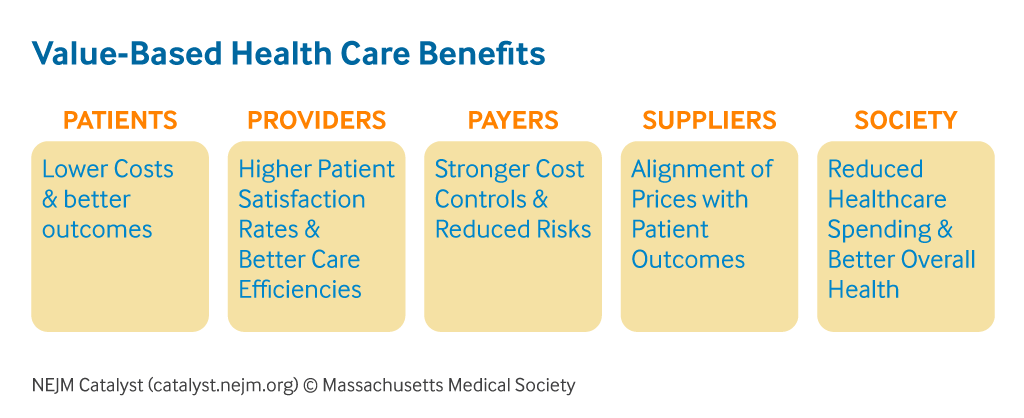Latest news about Bitcoin and all cryptocurrencies. Your daily crypto news habit.

Current Healthcare System: ‘Volume over Value’
Privatization of healthcare was once seen as a boon to patients who can pay for the cost of treatment. However, it transformed the novel services of healthcare that have the primary purpose of saving the lives of the people to a business where ‘volume matters more.’ Majority of today’s healthcare system is volume driven — a system in which providers are incentivized for providing more treatments and prescribing more medication, at the expense of the patient’s health.
Is such a system sustainable?
With the increase in the elderly population, chronic diseases, and cost of treatment, the volume-based system is destined to crumble. In the coming years, more number of people would not be able to access basic healthcare services, and the services like therapies would be a luxury that only a few in power can afford. Eventually, this will trigger more people falling ill and getting chronic diseases.
As mentioned above, the current healthcare system incentivized volume and not value. Here, the term ‘value’ refers to the performance of the drug or services to cure specific diseases. Thus, the current system is not incentivizing those manufacturers who are producing good quality products. Instead, it is helping those who are more focused on expanding business via marketing strategies.
In this conference, Ahmed Abdullah, CEO & Co-founder, Digipharm, explains in detail the benefits of the value-based system that can reduce healthcare spendings and improve the overall healthcare ecosystem.
So, why not adopt a value-based system?
Though it may sound more moral and humane, the practical implementation of the value-based system is almost next to impossible considering the current IT & Infrastructure development.
Some of the key challenges in implementing value-based system include:
Measurement of Performance
Since the value-driven system is based on performance, it becomes essential to measure performance. The question is, how to measure performance? Which metrics to use? Who would choose these metrics? Patients start the treatment at different points of time. They have varied treatment duration, and the time taken for the service/product to show effect can differ from patient to patient.
Moreover, patients keep traveling, switching from one healthcare entity to another, and there is a lack of interoperability of data among these entities. The administrative cost to device a system to measure the performance of the drug/service is so much that it negates the benefit of implementing value-driven healthcare.
Privacy & Security of Data
Measurement of performance means that patient’s data would be collected and stored. With regulatory compliance like HIPAA in place that restricts sharing personally identifiable information, it is difficult to develop a system with the current technology that collects only specific information and stores it in a particular format which is common across the globe. Such a system should also be able to prove that it has been storing and sharing the information in the prescribed manner.
Delays
For developing such a system, it’s natural to have checks at crucial points in the form of approvals. Now getting these approvals can cause delays. Moreover, the paperwork involved in enrolling the patient for performance measurement to take their consent for collecting and storing their treatment data can take much time.
Even after the performance measurement, the delays in transmitting the information can lead to delays in the treatment or reimbursement of funds for the treatment by the payer. In a similar incident in Ireland, the government stopped treatment of patients suffering from Hepatitis C due to lack of clarity regarding the number of patients being treated, since the program had exhausted its budget.
Where Does Blockchain Fit in all of this?
Blockchain has found many use cases in different industries, and one of them is data interoperability. It can record data in a unified format that can be used by entities around the world.
Additionally, the distributed ledger technology, a part of the Blockchain systems, ensures data can be recorded from any part of the world and is shared across all the participants of the Blockchain network who have valid credentials to access the information. Since all the participants are on the same network, approvals can be taken quickly. Any information update is shared across all the nodes (members) of the network almost instantly, ensuring there are no delays.
One of the key features of the Blockchain — Smart Contracts, will play a major role in implementing the value-driven system. These will ensure that the patient’s data is collected and stored only in a particular format based on predefined rules. Smart Contracts will also automate a lot of administrative processes, thereby reducing the cost of running such a system, making it a reality!
Conclusion: A Reality Check on Value-based Healthcare System
Developing a Blockchain based software solution is one thing, and building a global system is another. A value-based healthcare system can only be developed with the collaboration of many healthcare stakeholders on a global scale. Some of the Blockchain projects, like Digipharm, are working aggressively to develop such a system. They recently partnered up with EncrypGen, the first company to launch a genomic data marketplace.
Even today, many healthcare manufacturing companies, including Merck & Co., AbbVie, Novartis, Amgen, and more, are moving towards value-based healthcare. Deloitte estimated that by 2020, 75% of payments for healthcare would be value-based. Blockchain will surely play a central role in building such systems on a global scale.
How Blockchain Helps in Developing Value-based Healthcare Systems was originally published in Hacker Noon on Medium, where people are continuing the conversation by highlighting and responding to this story.
Disclaimer
The views and opinions expressed in this article are solely those of the authors and do not reflect the views of Bitcoin Insider. Every investment and trading move involves risk - this is especially true for cryptocurrencies given their volatility. We strongly advise our readers to conduct their own research when making a decision.

